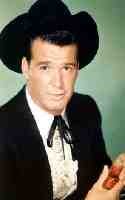In his column this morning David Broder opines that the relationship between Hillary and Bill Clinton poses unique challenges to the nation should Hillary be elected. He remembers his discomfort when Hillary was given a prominent role during Bill’s presidency:
When Bill Clinton was president, the large policy enterprise that was entrusted to the first lady -- health-care reform -- crashed in ruins. The causes were complex, and some of the burden falls on other people -- Republicans and Democrats in Congress, the interest groups and, yes, the press. But as one who reported and wrote in great detail and length about that whole enterprise, I can also tell you that the awkwardness of having an unelected but uniquely influential partner of the president in charge affected every step of the process, from the gestation of the plan to its final demise.
I don’t get it. How is having the president’s spouse in charge of some initiative any different than having any other equally unelected appointee or advisor, selected by the president, in charge? Condi Rice seems strangely, at least to me, close to President Bush. She is “an unelected but uniquely influential partner of the president.” Why is not David Broder disquieted by that situation? I have to suspect that David Broder’s feelings of “awkwardness” concerning Hillary Clinton have more to do with his political differences with her and his prejudices and hang-ups than with anything else.



1 comment:
Your point is valid but I don't think the example is very good because the Secretary of State, though unelected, has to be approved by the Senate while the president's spouse does not. A better example would be the president's advisors who are part of his personal staff. They are unelected and do not have to be approved by anyone but the president himself, presumably. (Karl Rove comes to mind although he is not longer in the White House, I think.)
One could even argue that the president's spouse, while not technically elected, is approved by the voters, unlike the cabinet or staff. The voters are certainly aware of the identity of the candidate's spouse, although they may not know in advance whether the spouse will be active in government after the election. Many presidential spouses are not.
Post a Comment